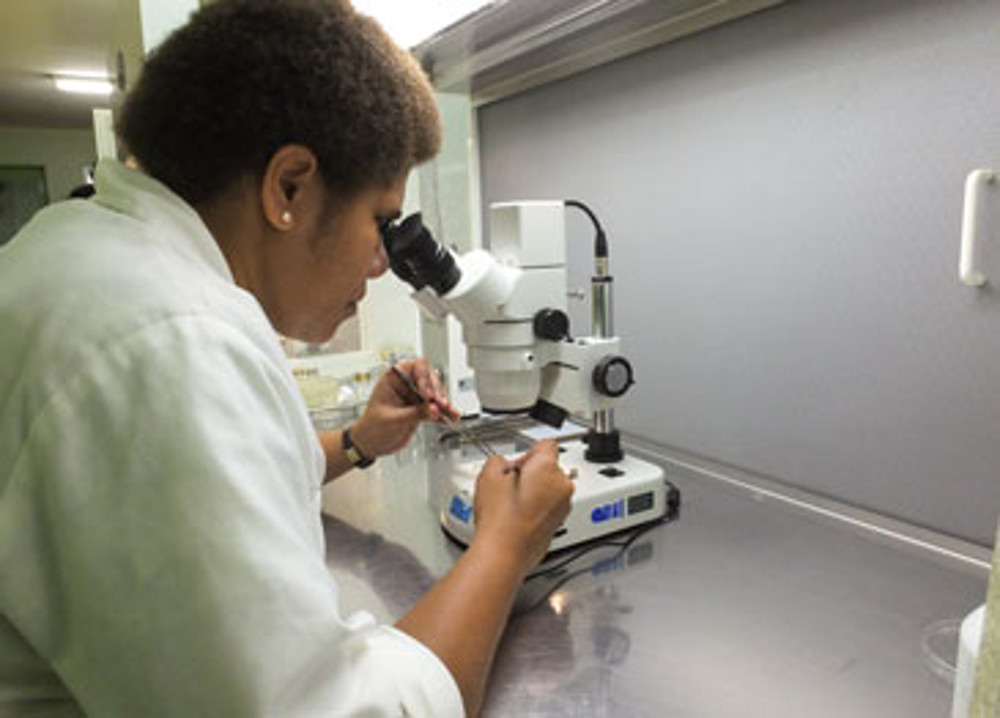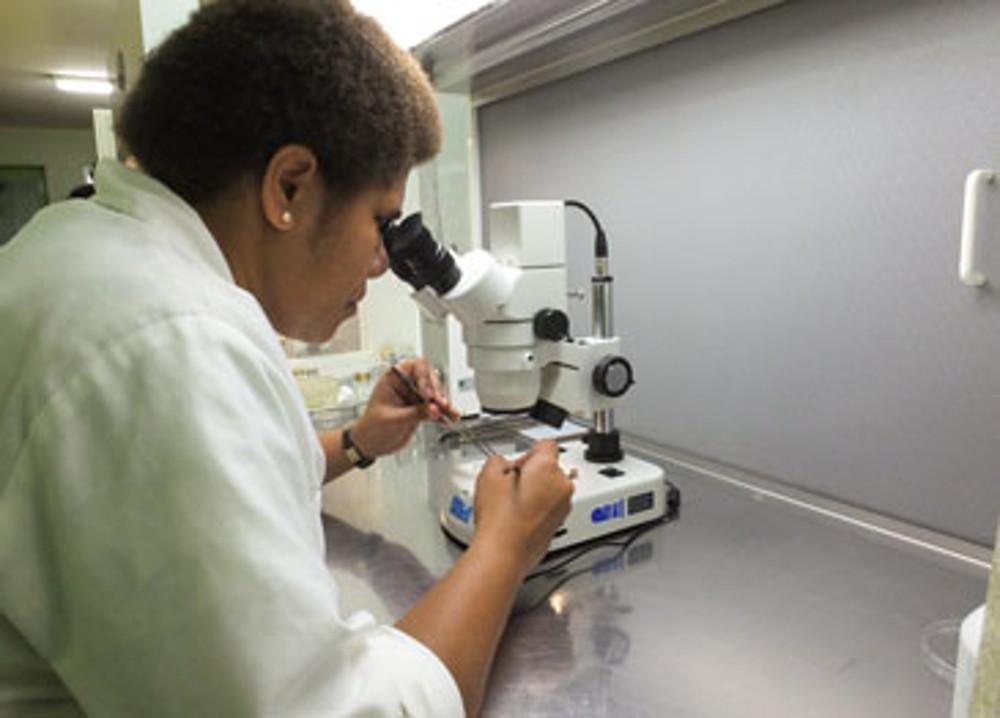 A scientist from the Pacific Community (SPC) is in Nanning Guangxi, China, this week to present important research on new methods for improving the supply of taro planting material.
A scientist from the Pacific Community (SPC) is in Nanning Guangxi, China, this week to present important research on new methods for improving the supply of taro planting material.
Improved production methods are important for food security and taro export industries in Pacific Island countries and territories.
Ulamila Lutu is currently attending the inaugural World Congress on Root and Tuber Crops, which brings together around 750 key industry stakeholders including farmers, researchers, the private sector and donor agencies.
Ms Lutu, a senior Research Technician at SPC’s Centre for Pacific Crops and Trees in Fiji, presented the centre’s efforts to improve mass propagation of taro planting material using a “bioreactor system”, with Samoa’s taro industry providing a case study.
This research is especially significant in light of the taro leaf blight which saw Samoa’s taro exports fall dramatically from 6,000 tonnes in 1993 to almost zero in 1994.
The study was conducted by SPC’s “Developing a clean seed system for market-ready taro cultivators in Samoa” project with funding support from the Australian Centre for International Agricultural Research (ACIAR) under the Pacific Agribusiness Research Development Initiative.
The SPC trial found that it is possible to reduce the time needed to produce viable taro planting material by eight weeks (from 28 weeks to 20 weeks) using the bioreactor system. The bioreactor-treated plantlets also appeared sturdier and taller compared to those cultured through conventional methods.
The system, a type of laboratory vessel that is used to provide an enhanced environment for growing plantlets in various liquid solutions, was originally successfully trialled on breadfruit, resulting in shortening the time required to produce field ready plants from 44 weeks to 30 weeks.
CePaCT’s research, made possible with Australian Government support, provides significant insight into how new mass production methods can help meet the growing demand for traditional export crops in the Pacific.
The World Congress on Root and Tuber Crops concludes on 22 January. More information on the congress can be found at http://www.gcp21.org/wcrtc/index.html.
Media contact
Valerie Tuia, SPC Genetic Resources Coordinator, [email protected] or +679 337 0733
Caption
Senior Research Technician, Ulamila Lutu, in a laboratory at SPC’s Centre for Pacific Crops and Trees in Fiji. Photo: Sailesh Kumar Sen
Note to Editors
The Pacific Community is the principal scientific and technical organisation in the Pacific region, proudly supporting development since 1947. It’s Centre for Pacific Crops and Trees, in Fiji, is the region’s only internationally recognised genebank that also plays a vital role in conserving the world’s largest taro and aroid collections and disseminating improved crop varieties globally.
